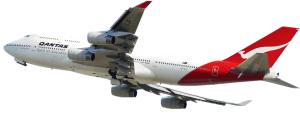 You may soon be able to take a trip into space. Earlier this month, NASA announced the nine selected astronauts who will participate in the space agency’s upcoming test flights. The flights will include the Crew Dragon capsule developed by SpaceX as well as Boeing’s CST-100 Starliner capsule. And surprisingly, these capsules may launch sooner than expected. According to a report by NASA, the aforementioned capsules may be launched as early as next year.
You may soon be able to take a trip into space. Earlier this month, NASA announced the nine selected astronauts who will participate in the space agency’s upcoming test flights. The flights will include the Crew Dragon capsule developed by SpaceX as well as Boeing’s CST-100 Starliner capsule. And surprisingly, these capsules may launch sooner than expected. According to a report by NASA, the aforementioned capsules may be launched as early as next year.
Both SpaceX and Boeing have been developing new space technologies for more than a decade. This is part of NASA’s plan to use private U.S. companies for shuttle launches rather than relying on foreign companies or governments. With NASA currently reliant on foreign launch services, it’s spending a hefty amount to launch new satellites and shuttle astronauts to the International Space Station (ISS). With the help of SpaceX and Boeing, however, NASA could reduce its reliance on foreign services, allowing it to perform launches faster, more efficiently and at a lower cost.
So, what’s next for SpaceX and Boeing? SpaceX is expected to perform an unmanned test of the company’s Crew Dragon capsule later this year. Following this test, SpaceX will attempt an in-flight abort of the Crew Dragon capsule. During this test, which is also unmanned, the company will attempt to reposition the capsule in mid-flight and guide it safely back to Earth. Boeing is also planning test launches of its CST-100 Starliner capsule, though the U.S. aerospace manufacturing company hasn’t released many details about the tests.
When speaking about the upcoming test flights, SpaceX’s Gwynne Shotwell explained that testing is essential, and that SpaceX wants to make sure that it can safely launch astronauts. “We are not going to fly until we are ready to fly safely,” said SpaceX Chief Operating Officer Gwynne Shotwell. “We need to hit all the boxes and do everything we need to do to take astronauts from U.S. soil as often as NASA will let us.”
Space tourism may sound like a far-fetched idea, but many analysts say that it’s not matter of if it occurs but when. According to a report by Space.com, analysts predict that commercial space travel will likely become a reality within the next 12 months. Even when it’s available, though, commercial space travel won’t be cheap. In 2014, Virgin Galactic began selling tickets for a low-orbit flight at a cost of $200,000 to $250,000. Whether SpaceX or Boeing charges more or less remains to be seen, but it’s safe to say that taking a trip into space won’t be cheap.



